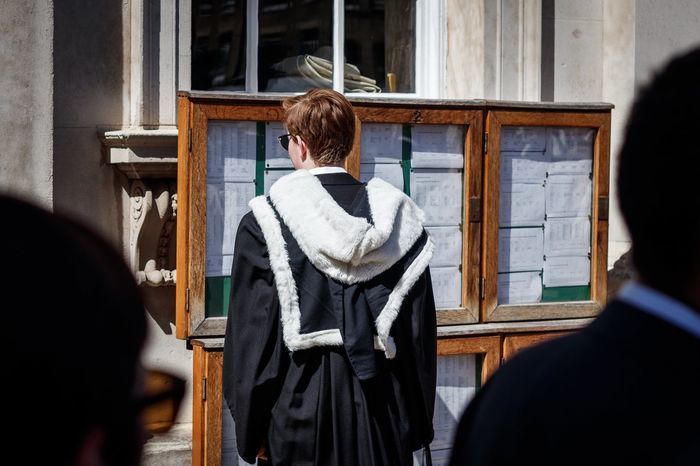Holiday bliss or needless abyss?
Sam Hudson and Alex Levy go head to head on Cambridge’s long summer holidays. While one argues that our summer holiday can’t be long enough, the other thinks the nearly 4 month hiatus is excessive

For
“There is a rather dubious story told by Roger Stone, sleazy scumbag that he is, of him winning his staunchly Conservative primary school’s mock election for John F. Kennedy against Richard Nixon merely by spreading a rumour that Nixon was going to introduce Saturday school in the US. There are, of course, many readings of this political parable which are for an entirely different article but, if anything, it highlights how unpopular introducing more time at work is. Thus, defending our long summer holidays places me in a childishly enviable position. It just seems intuitive that holidays are a good thing, and the longer they are, the better they are. In fact, I had little idea that our long vacation was a remotely contentious topic before the commission for this article went out.
“This is a chunk of time off you simply do not get going to other universities. And make no mistake: it is a privilege”
Between the end of my (rather late) exams on the 14th of June and the start of next term on the 5th of October there are almost exactly sixteen weeks. There is something immensely joyful about watching the summer holiday stretch ahead into the far-away future. In fact the Germans have a word for it: Sommerferienewigkeitsgefühl — the feeling that a Summer holiday will last forever. And while sixteen weeks may not be forever, it is certainly a very substantial amount of time to have free.
This is a chunk of time off that you simply do not get going to other universities. And make no mistake: it is a privilege. It can be used productively, giving you more flexibility with internships and time to accrue experience that is simply not possible with shorter holidays. This is certainly one reason why Oxford and Cambridge consistently maintain their status as the most employable universities in the UK.
Maybe you’re like me and find this all awfully careerist. Fear not, I have you covered. Last summer, I didn’t do an internship. Instead, I unregrettably pissed the holiday away by playing cricket rather terribly for my club. In my defence, I needed a break after the shitshow that was online learning and what better way to spend a summer in God’s Own Country than playing Jesus’ own sport?
This summer I am again not doing an internship. I hope to be a bit more productive than last year; writing articles and perhaps getting a headstart on the content for next year is my current plan. And this is ultimately the beauty of Cambridge’s long summer holidays, you are free to make of them whatever you want. They are there so you can pursue your other interests outside notoriously busy term time, because most people are so much more than just their degree.
This is yet another debate that revolves around some Oxbridge peculiarity: many of these not seeming to exist for particularly good reasons other than vague gesturing towards tradition. Our long holidays and short term times are not one of these. Oxbridge is meant to be an academic challenge and eight week terms are an important part of this. Equally, Oxbridge is meant to produce more than soulless, learned automatons and long holidays give time for necessary reflection and development. After all, if you were just content becoming an automaton you could always just go to Imperial instead.” - Sam Hudson
Against
“As with many of Cambridge’s bizarre idiosyncrasies and traditions, the ‘intense’ 8 week term and the long vacations that go with it are often worn as a perverse badge of honour. Our late starts and early finishes are yet another feature setting us apart from most British universities, and mark us out from others as much as our garish college puffers. But as an evolving institution, we owe it to ourselves and future students to question what about the oft-touted ‘Cambridge experience’ is truly beneficial.
Arguing against having more holiday seems ridiculous until you consider what we lose in exchange for our long summer vac. This university does everything to the extreme, and Easter Term is the perfect example. Kicking off with the blurry revelry of C-Sunday, you hurtle through the final weeks of teaching and into exams, cramming in a week of hedonism before packing up and leaving. At most other universities private house leases run into the summer, allowing students to leave at their own pace once they are ready to go home. Broadly speaking, we don’t have that option, cramming in hurried au revoirs with minimal time to consolidate friendships before the three month gulf, a pertinent point given the role social isolation must surely play in the student mental health crisis raging at Cambridge.
We are afforded little to no time to come up for air, catch our breath and appreciate the city which is supposed to be our second home — being turfed out of our accommodation to enjoy our ‘long summer holidays’, conveniently making way for the summer conference trade, is just another facet of Cambridge’s hothouse culture of work. To my shame, I’ve been to more college libraries than museums over two years here and you can easily go a whole term without venturing far beyond the same few streets.
“A little while to simply exist in Cambridge without the whirlwind of obligations would go a long way”
This works just fine if the intention is to keep us all on the same blinkered path, between the same medieval walls, trudging from essay to essay with work as our foremost priority. Work should be a priority, but it is crucial that a balance is struck: a little while to simply exist in Cambridge without the whirlwind of obligations would go a long way, especially for those with complicated home lives who might benefit from the option of more independence without a summer long lease. And who knows, maybe the patronisingly named ‘town and gown’ relations would improve if Cambridge students had the time to get to know the city we live in.
While the long holidays allow students to earn money and decompress from the stresses of the year, might we not all be a little more rounded if we blurred the line between Cambridge and home, breaking down the rigid association of Cambridge with a gruelling work-hard (and sometimes play-hard) lifestyle? Perhaps then we wouldn’t need four months to recuperate from the hallowed ‘intensity’. Before we sacrifice the possibility of a more productive and realistic relationship with the city at the altar of Oxbridge exceptionalism, let’s decide if this particular exception is truly one we should celebrate.” - Alex Levy
 News / Uni Scout and Guide Club affirms trans inclusion 12 December 2025
News / Uni Scout and Guide Club affirms trans inclusion 12 December 2025 News / Cambridge Vet School gets lifeline year to stay accredited28 November 2025
News / Cambridge Vet School gets lifeline year to stay accredited28 November 2025 Science / Did your ex trip on King’s Parade? The science behind the ‘ick’12 December 2025
Science / Did your ex trip on King’s Parade? The science behind the ‘ick’12 December 2025 News / Cambridge study finds students learn better with notes than AI13 December 2025
News / Cambridge study finds students learn better with notes than AI13 December 2025 News / Pembroke to convert listed office building into accom9 December 2025
News / Pembroke to convert listed office building into accom9 December 2025









